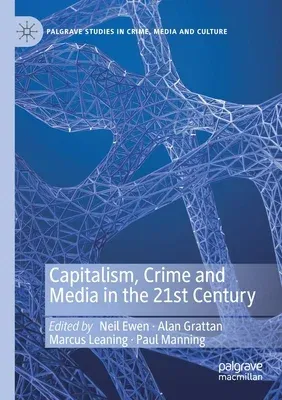Capitalism, Crime and Media in the 21st Century (2021)Paperback - 2021, 16 April 2022

Qty
1
Turbo
Ships in 2 - 3 days
In Stock
Free Delivery
Cash on Delivery
15 Days
Free Returns
Secure Checkout

Part of Series
Palgrave Studies in Crime, Media and Culture
Print Length
235 pages
Language
English
Publisher
Palgrave MacMillan
Date Published
16 Apr 2022
ISBN-10
3030564460
ISBN-13
9783030564469
Description
Product Details
Book Edition:
2021
Book Format:
Paperback
Country of Origin:
NL
Date Published:
16 April 2022
Dimensions:
21.01 x
14.81 x
1.45 cm
ISBN-10:
3030564460
ISBN-13:
9783030564469
Language:
English
Location:
Cham
Pages:
235
Publisher:
Weight:
335.66 gm